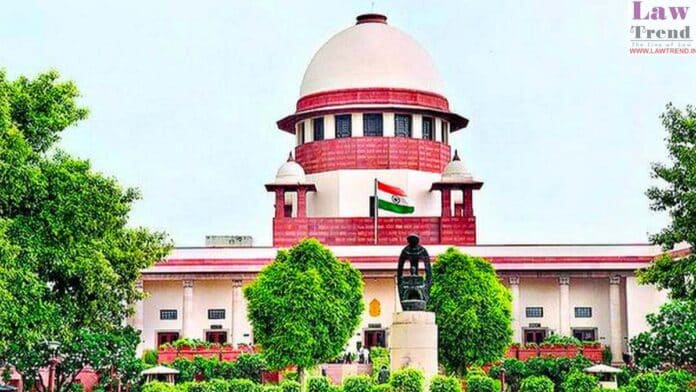The Supreme Court has ruled the constitutional scheme that a person cannot be kept in preventive detention beyond a period of three months is not applicable if an advisory board has confirmed there is sufficient cause for such detention.
In an important verdict, the top court also held the state government was not required to review its orders of detention every three months after it has passed the confirmatory order following the report of the advisory board.
Article 22(4) of the Constitution deals with protection against arrest and detention in certain cases and says “No law providing for preventive detention shall authorise the detention of a person for a longer period than three months unless (a) an Advisory Board consisting of persons who are, or have been, or are qualified to be appointed as, Judges of a High Court has reported before the expiration of the said period of three months that there is in its opinion sufficient cause for such detention.”
“The period of three months stipulated in Article 22(4)(a) of the Constitution is relatable to the initial period of detention up to the stage of receipt of report of the Advisory Board and does not have any bearing on the period of detention, which is continued subsequent to the confirmatory order being passed by the State Government on receipt of the report of the Advisory Board,” a bench of Chief Justice D Y Chandrachud and Justices J B Pardiwala and Manoj Misra said in its 75-page judgement.
Justice Pardiwala, writing the judgement, said the continuation of the detention pursuant to the confirmatory order passed by the state government need not also specify the period of detention and neither it is restricted to a period of three months only.
“If any period is specified in the confirmatory order, then the period of detention would be upto such period, if no period is specified, then it would be for a maximum period of twelve months from the date of detention. The state government, in our view, need not review the orders of detention every three months after it has passed the confirmatory order,” it held.
The verdict came on an appeal by Pesala Nookaraju who was detained on August 25, 2022 for indulging in bootlegging activities under the Andhra Pradesh Prevention of Dangerous Activities of Boot-leggers, Dacoits, Drug Offenders, Goondas, Immoral Traffic Offenders and Land Grabbers Act, 1986.
The Andhra Pradesh High Court had dismissed his plea against the detention order passed by the district magistrate of Kakinada.
The top court also dismissed the plea, holding that once the advisory board has confirmed the detention, he can be kept in preventive custody for a period of 12 months.
Referring to previous judgements, it said since the legislation does not require the detaining authority to specify the period for which a detenu is required to be detained, the order of detention would not be rendered invalid or illegal in the absence of such specification.
Also Read
“In the case on hand, the detaining authority has specifically stated in the grounds of detention that selling liquor by the appellant detenu and the consumption by the people of that locality was harmful to their health. Such statement is an expression of his subjective satisfaction that the activities of the detenu appellant are prejudicial to the maintenance of public order,” it said.
Not only that, the detaining authority has also recorded the satisfaction that it is necessary to prevent the detenu from indulging further in such activities and this satisfaction has been drawn on the basis of the credible material on record, it said.
“It is also well settled that whether the material was sufficient or not is not for the Courts to decide by applying the objective basis as it is a matter of subjective satisfaction of the detaining authority,” the apex court said while dismissing the appeal.




